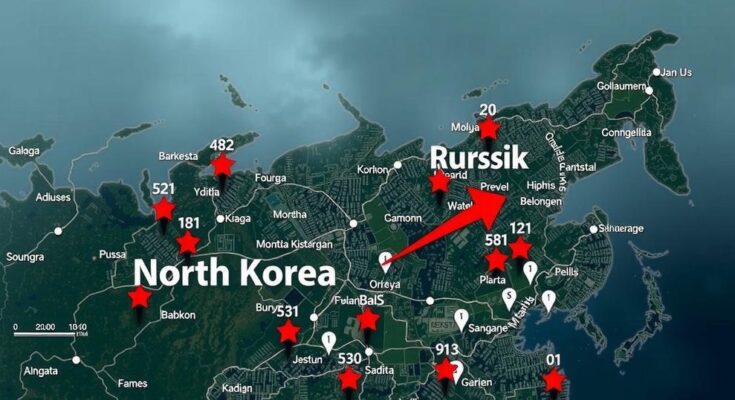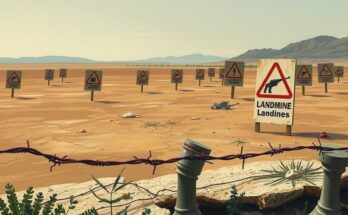A U.S. official confirmed North Korean troop casualties in Russia following a Ukrainian airstrike. Reports suggest 500 North Koreans were killed, including high-level officials. As South Korea contemplates military assistance to Ukraine, tensions rise with Russia, warning against such actions.
Taipei, Taiwan – A U.S. official has confirmed that North Korean troops stationed in Russia have experienced casualties, marking the first acknowledgment following reports of 500 North Korean fatalities due to a Ukrainian strike involving British missiles. The U.S. Department of Defense representative indicated that these casualties occurred in the Kursk region as a result of an airstrike executed by Ukrainian forces. Despite this confirmation, the Deputy Pentagon Press Secretary stated that the Department of Defense could not independently verify the total number while asserting that South Korea’s main security agency had identified specific intelligence on the matter. Pro-Russian war bloggers have circulated videos suggesting that up to 12 British Storm Shadow missiles targeted a command headquarters in the village of Maryno, which was reportedly utilized by both North Korean and Russian officers. Reports indicate that this attack also resulted in the death of a senior North Korean official.
The U.S. and South Korea have asserted that North Korean soldiers engaged in combat in Kursk against Ukrainian troops who had begun occupying portions of the Russian region in early August. Estimates from the U.S. suggest that over 10,000 North Korean soldiers have been deployed to Kursk, where they are participating in military actions alongside Russian forces. However, Russia and North Korea have refrained from confirming the presence of these troops.
In related developments, special envoys from Ukraine, led by Defense Minister Rustem Umerov, are visiting South Korea to meet with President Yoon Suk Yeol. Their agenda reportedly includes discussions regarding the deployment of North Korean troops and potential requests for arms support for Ukraine. Notably, President Yoon has reiterated that while South Korea previously offered humanitarian and economic assistance to Ukraine, the emergence of North Korean forces in Russia prompts a reevaluation of the nation’s stance on military support. Russia has issued a warning, stating that any arms supply from South Korea to Ukraine would severely jeopardize diplomatic relations between the two nations.
This recent series of events highlights a significant escalation in the involvement of North Korean troops in the conflict, raises questions about the geopolitical ramifications, and underscores the ongoing complexities of international military support dynamics.
The issue regarding North Korean troops in Russia has escalated amidst the ongoing conflict in Ukraine. As reports emerge of North Korean casualties due to Ukrainian airstrikes, there is a growing concern regarding the implications of foreign military involvement in the conflict. The deployment of North Korean soldiers in support of Russian forces has provoked responses from the U.S. and South Korea, both of which have been monitoring the situation closely. Additionally, diplomatic discussions related to military assistance have intensified, with Ukraine seeking support from South Korea, which has previously refrained from supplying arms during active conflicts. The involvement of North Korea in Russian military operations is a crucial factor influencing regional dynamics and international relations.
In conclusion, the confirmation of North Korean casualties in the Kursk region due to Ukrainian airstrikes reveals the increasingly complex nature of the ongoing conflict involving regional players. The involvement of North Korean troops raises significant concerns for international security and diplomatic relations, particularly as South Korea evaluates its response to requests for military support from Ukraine. Furthermore, Russia’s warnings regarding potential repercussions underscore the delicate nature of alliances and military cooperation in the context of this conflict.
Original Source: www.rfa.org




